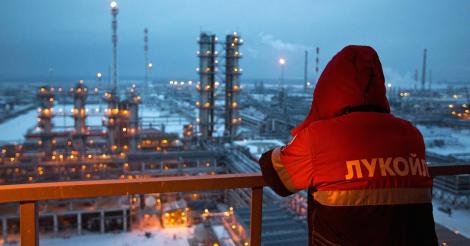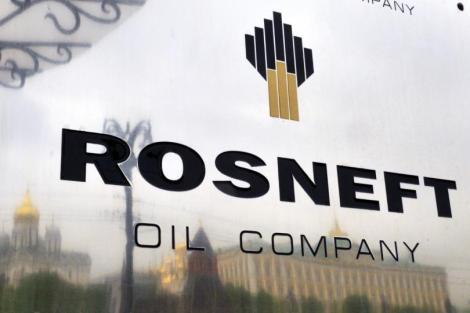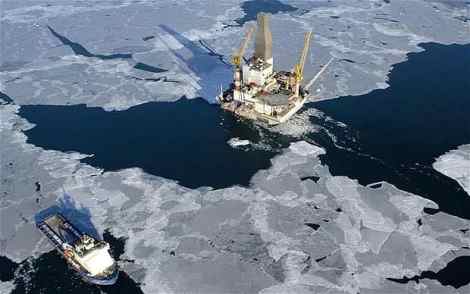Since their creation, oil companies have been a paradigm of power and wealth. Terms such as “oligarchs” and “oil giants” became of common use, depicting the economic force they represent.
These empires are owned by either a private investor (or a group of such) or a national figure. And although this might seem a trivial difference, it is not. The cases of Rosneft, Yukos and Lukoil play an important role as examples of how both private and public owned companies behave(d) in the recent years. Russia executive used the national companies way beyond the economic scopes that are usually in their midst, marking a clear difference to those private companies that simply look for profitable ways to continue their affairs.
Private vs. Public in the Oil Sector theorized.
In general, it is fairly safe to say that any type of company has making profits as its final goal, therefore will move towards such end no matter what. These profits are to be invested differently according to the type of ownership: private companies will invest these profits in order to generate future higher profits for its shareholders, who put money in it and expect more in return. On the other end, companies that are owned by the state will use those profit to enhance other state needs, depending on the sector. The taxes that citizens pay are, similarly to the shareholders, an investment for a return in terms of services. Therefore, citizens have a way to influence company decision and the outcome of said investment, and most importantly there is some sort of public scrutiny under which the company and the government are.
Nevertheless, this definition applies slightly differently in the so called rentier states, such as Russia. A rentier state is defined as “a country that garners a substantial portion of its income from external sources, most generally from the sales of resources such as oil and gas”. By relying heavily on the oil sector, taxation does not fall heavily on citizens for this matter and by consequence such companies (and the state) are free from the aforementioned public scrutiny. Joseph Stiglitz wrote that «Even if they [the citizens] disapprove of state action, they lack the means to withdraw their financial support from states. As a result, states have less need to engage with civilians».
This leaves the state to dispose of its own companies much more freely than in other sectors. Although it seems more similar to a private company than before, this lack of accountability fosters particular consequences for public owned companies.
Institutional strength and patterns of ownership.
The institutional capacity of a state is as well influenced by the type of ownership in its regarding sector. Although agreeing that the institutional capacity is important when talking about the oil sector, opposing theories argue that Private companies are the wrongdoers. Joseph Stiglitz says that privately owned companies have clashing interests in respect to those of the states, and that institutional strength is the weapon to better cope with it. There are various ways by which private companies can cheat the state, such as hiding the true value of the resource they want to acquire, or deduct the costs of production without telling the state (see State of Alabama vs. Exxon). Adding to this, privatization increases the chances of corruption of state officials, as the private company is only interested to pay the lower price possible.
If a cost-benefit analysis is positive, corruption is nothing more than an added expense to the final calculus. Nationalization, with the right modification, is rather the correct answer. Regarding the building of strong institutions to cope with the many dangers of the private companies, a dilemma for the state may arise: «If the government has developed these strong institutions, perhaps it is better for it to go one step further, and develop the institutions for oil extraction itself. […] There is one marked advantage of this strategy: It avoids the agency problem of privatization itself, in the process of which the government may lose a substantial fraction of the value of the asset». At different political and historical periods one from the other, both theories have been sustained in Russia, yet with minor changes.
Collateral tasks and efficiency
Before applying these theories to Russia, a remark worth noticing is that made by Hanson, in trying to assess what are the reasons and promises behind nationalization process. Using the case study of Russia, he underlines how boosting the oil sector was not the only concern. In fact, the possibility of creating strong, viable companies with powers that transcended the economic realm, was appealing to the state elite. With this new tool, political enemies could be attacked and made innocuous via “legal” means. In addition, having a strong economic player internationally could enhance relations with foreign states, and perhaps even increase the chances of signing agreements of other type.
Sometimes NOCs are burdened with “tasks that do not normally fall within their scope of operation, namely regulatory functions and the provision of subsidies to industry and the social sphere”, hindering their ability to be economically efficient. Other reasons for this can be found in the lack of organizational stability, due to the continue changes in terms of structure and personnel. Lastly, but not less important, NOCs are perceived as “self-service shop by political elites charged with oversight over the respective industry”. Efficiency therefore seems unlikely for NOCs, something that on the other hand private companies might offer.
From mass privatization to State monopoly
After the fall of the USSR, Russia underwent a major privatization of the oil sector. The executive of the ‘90s saw privatization as the salving anchorage for the tired Russian economy. Institutionally wise, this has been perceived as a great moment for Russia: 1998’s fiscal regime broadened and it increased the budgetary contribution of both personal income tax and corporate income tax; few years later, between 2000 and 2001, Russia established a new taxing system which increased tax collection rates (in 2004, the Government announced an increase of 19.7%).
 Most of the newly formed oil companies were owned by Russian oligarchs (initiating the domestic private – state elite pattern), close to the political scene but still free to act as they pleased. In this period one of the few public companies born was Rosneft. Rosneft was created in 1992, principally with the scope to promulgate and push forward R&D in the sector and representing the state in production-sharing agreements (PSAs). Yet, with the beginning of Putin’s era, things started to change. By looking at oil production in that year, we can see how much Rosneft has grown from being a small time company relegated to marginal work. Table 1 provides evidence of it, showing Ronseft right behind the two major producer at the time, TNK/BP and Lukoil, but still way ahead of all the other companies. What is more important is that TNK/BP, after getting rid of the BP shares, was recently acquired by Rosneft and that Yukos ceased to exist in 2006; also in this case, all major assets were taken by the public company.
Most of the newly formed oil companies were owned by Russian oligarchs (initiating the domestic private – state elite pattern), close to the political scene but still free to act as they pleased. In this period one of the few public companies born was Rosneft. Rosneft was created in 1992, principally with the scope to promulgate and push forward R&D in the sector and representing the state in production-sharing agreements (PSAs). Yet, with the beginning of Putin’s era, things started to change. By looking at oil production in that year, we can see how much Rosneft has grown from being a small time company relegated to marginal work. Table 1 provides evidence of it, showing Ronseft right behind the two major producer at the time, TNK/BP and Lukoil, but still way ahead of all the other companies. What is more important is that TNK/BP, after getting rid of the BP shares, was recently acquired by Rosneft and that Yukos ceased to exist in 2006; also in this case, all major assets were taken by the public company.
This change in trend is important to underline because it shows of, in a first period, privatization helped to form more stable and strong institutions in the oil sector, but then nationalization followed Stiglitz’s quote on states self creating the means for efficient oil sector. The difference with the example of Norway is, though, that NOCs have been used for interest of the elite rather than for the state.
Despite contrasting theoretical views, the differences due to the type of ownership are evidently present. The actual situation in Russia is inclined towards a strong nationalization, and the “use” of oil companies from the government for collateral activities shows how the elite’s interests hinder the effectiveness of public companies. In the same way, private organizations such as Lukoil might encounter a sinister fate similar to those in the past 10 years.
What is clear is that oil companies not only suffer a profound change due to the type of ownership, but so does the state indirectly. From economic agreements to social contracts, the wider and wider use of NOCs made them a tool in the hands of the government to pursue political enemies or foster social advancement in a detached region. The scope of the paper is not to determine whether one is better for the other, but rather underline how Russia’s unique oil sector is managed mainly by the state, and not only for strictly oil-related business.
But, seen the high reliance to oil companies for many activities of the state, a dilemma may emerge: what happens when the oil is gone? Most likely, the executive will manage in the upcoming years to shift their leverage to different and more long-lasting interests, yet shifting the power to new entities. Until then, Public owned companies remain a highly influenced and influential toll on the hands of the state, a well-oiled machine for the personal use of the Russian Executive power.
All rights reserved ©Nicolò Alfonso – twitter @nickalfo



